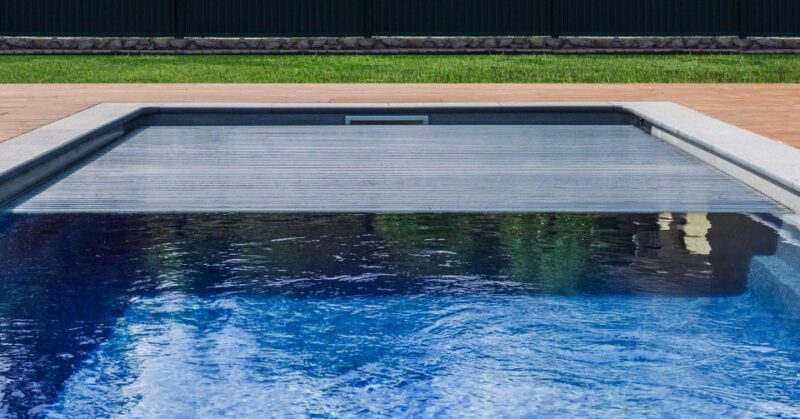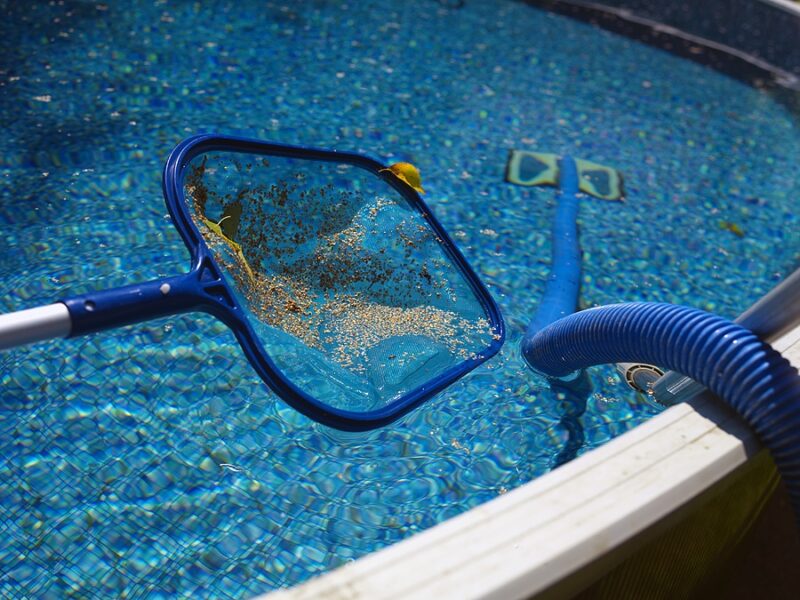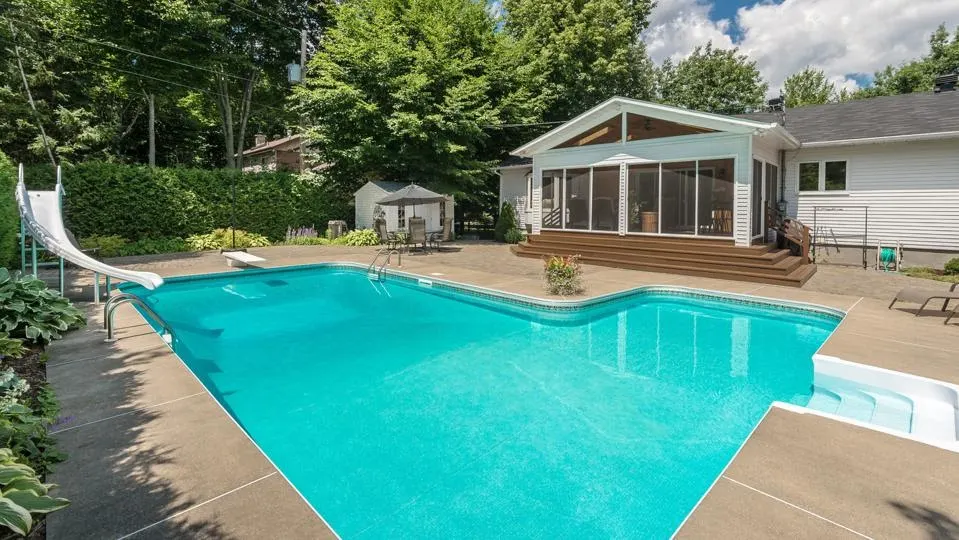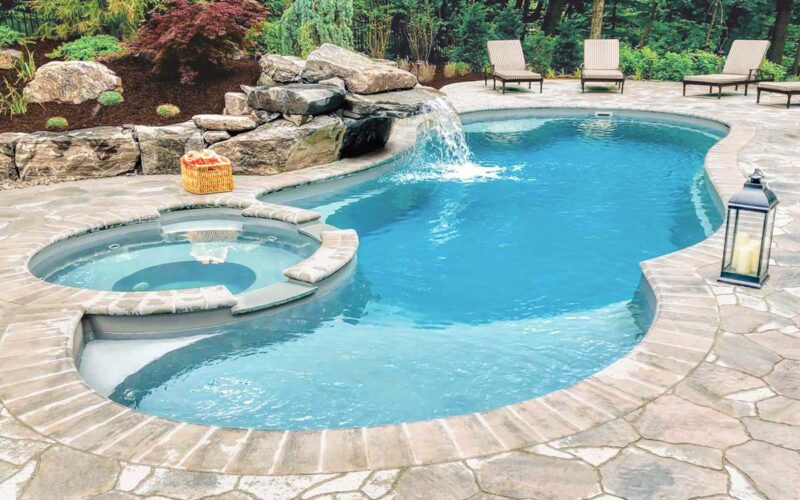Owning a swimming pool is undoubtedly an enriching experience, providing a space for relaxation, recreation, and rejuvenation right in your backyard. However, the dream of idyllic pool ownership can quickly become a challenge when faced with the demands of regular maintenance. Conventional ones require consistent effort to ensure cleanliness and water quality, not to mention the costs associated with chemical treatments and energy usage. Enter the revolutionary concept of self-cleaning pools – the perfect solution for those seeking to enjoy the benefits of a pool without the usual hassles. This technology promises a cleaner, healthier, and more efficient pool, allowing you more time to enjoy your aquatic haven.
How Self-Cleaning Pools Work

Self-cleaning pools incorporate advanced technology to automate the cleaning and maintenance process. The cornerstone of these systems is a network of built-in cleaning nozzles strategically positioned to maximize coverage. These nozzles emit powerful jets of water that push debris towards a centralized drain. The debris is then captured in a filtration system, which typically employs a combination of cartridge filters and sand filters to trap particles as small as 20 microns.
The automated filtration system continually circulates water, removing debris and impurities, and promoting water clarity and hygiene. Some models even incorporate UV or ozone sanitization for enhanced purity of the entire space. Programmable timers ensure optimal performance and energy efficiency, scheduling the cycles during off-peak hours or when the premises are not in use.
Time-Saving Benefits
The most apparent advantage of self-sanitizing pools is the significant time savings. Traditional maintenance requires regular skimming, vacuuming, and brushing to remove debris and prevent algae growth. These tasks can consume several hours each week – time that could be better spent enjoying your pool.
In contrast, self-cleaning ones automate these chores, eliminating the need for manual labor. The pool essentially refreshes itself while you sleep, work, or engage in other activities. You can dive into crystal clear waters whenever you want, without the need to dedicate hours to pre-swim cleaning.
Enhanced Water Quality
Self-cleaning pools also elevate the water quality. The continuous circulation and filtration process remove organic matter and impurities more efficiently than traditional methods. This constant motion prevents stagnation, keeping the water fresh and reducing the risk of bacteria or algae formation.
The enhanced purity and water clarity make swimming more enjoyable, while also reducing the need for chemical treatments. As the pool stays without the dirt and debris for longer, you can reduce the frequency of shock treatments and other chemical applications, promoting a healthier swimming environment and reducing maintenance costs.
Energy Efficiency

Self-cleaning types, the kind you can check out with Central Pools, have been designed with energy efficiency in mind. The variable-speed pumps adjust the flow rate based on the pool’s needs, reducing energy consumption. Programmable timers further enhance energy savings, scheduling cleaning cycles during off-peak energy hours.
Furthermore, the constant water circulation reduces the need for heating. By evenly distributing the heat throughout the water, you can maintain a comfortable temperature without constantly running the heater. These energy-saving features contribute to lower operating costs, making it an economically sound choice.
Reduced Chemical Usage
Traditional pool maintenance relies heavily on chemical treatments to maintain water quality. Excessive chemical usage can lead to imbalanced water conditions, causing issues such as skin and eye irritation. Self-cleaning ones, however, can minimize these concerns.
By maintaining optimal water circulation and filtration, these pools reduce the need for chemicals. The continuous removal of impurities prevents issues like algae growth, reducing reliance on algaecides and other treatments. This results in a more eco-friendly and cost-effective pool maintenance routine, and a healthier swimming environment.
Algae Prevention
Algae can be a significant issue for pool owners, leading to murky water and potentially damaging wet surfaces. Traditional methods of algae prevention often require manual scrubbing and chemical treatments. Self-cleaning types, however, mitigate this problem through efficient water circulation and filtration.
By keeping the water in constant motion, these pools prevent algae from adhering to surfaces. This not only keeps it clean and clear but also minimizes the need for manual scrubbing or harsh chemical interventions, saving you time and effort.
Debris Management

Effective debris management is crucial for maintaining a clean and inviting pool. Self-cleaning ones handle this task with ease, thanks to a combination of automated features.
Skimmers collect floating debris like leaves and grass, while the powerful water jets push heavier debris towards the main drain for removal. Some models even include automatic surface cleaning and bottom debris removal features. This continuous cycle of cleaning and filtration ensures a pristine pool environment with minimal manual intervention.
Easy Maintenance Access
Another advantage of self-cleaning pools is their user-friendly design. The filtration systems are typically located for easy access, making it simple to remove and clean or replace the cartridges.
Intuitive control panels provide straightforward operation, allowing you to customize the cleaning cycles, adjust the pump speed, and monitor the system’s performance. These user-centric design elements contribute to a simplified maintenance routine and hassle-free ownership experience.
Customization Options
Self-cleaning pools also offer a range of customization options. You can adjust the cleaning cycles, personalize the cleaning intensity, and tailor the maintenance schedule to fit your specific needs and lifestyle.
Whether you want to prioritize energy efficiency, require additional cleaning after a pool party, or need to adjust the schedule while you’re away, self-cleaning pools offer the flexibility to cater to your requirements.
Long-Term Cost Savings
While self-cleaning pools may require a higher initial investment, the long-term cost-saving benefits make them a financially sensible choice. Reduced maintenance expenses, extended equipment lifespan, and potential savings on water and chemical usage can result in significant cost reductions over time.
The lower energy consumption of self-cleaning types also contributes to lower operating costs. By automating the cleaning process and optimizing energy use, these projects provide excellent value for money in the long run.
Conclusion

The self-cleaning pool is a game-changer for pool owners. By automating and optimizing the maintenance process, these pools offer a plethora of benefits, from time savings and enhanced water quality to energy efficiency and reduced chemical usage. Whether you’re a busy professional, a pool-loving family, or an eco-conscious homeowner, a self-cleaning pool could be the solution to your maintenance woes. By investing in one, you’re not just buying a swimming pool – you’re buying more time to enjoy it.

